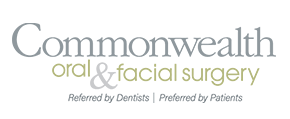06 Jul Are there diet restrictions after wisdom teeth removal?
 Wisdom teeth removal is a great investment in your oral health and wellbeing. Having your wisdom teeth removed by an oral surgeon reduces your risk for common dental conditions and can make oral function more comfortable. After your procedure, you will need to temporarily adopt a soft diet while you heal.
Wisdom teeth removal is a great investment in your oral health and wellbeing. Having your wisdom teeth removed by an oral surgeon reduces your risk for common dental conditions and can make oral function more comfortable. After your procedure, you will need to temporarily adopt a soft diet while you heal.
Why a Soft Diet is Necessary
After your wisdom teeth are removed, your extraction sites will need time to heal. Eating foods with sharp edges or items that require lots of chewing could keep these post-operative sites from healing.
The empty tooth socket where your wisdom tooth once was will form a clot. Keeping this clot intact is vital to the healing process. If this clot is disturbed, you could develop something known as “dry socket”. Dry socket is painful and detrimental to your recovery.
What You Should Eat After Wisdom Teeth Removal
After your wisdom teeth are removed, you will need to adopt a liquid and soft diet during your recovery. Liquid items are especially beneficial the day of and the day after your procedure. Things like broths, pureed soups, and smoothies are great choices. Just be sure to avoid drinking with a straw as the suction can negatively affect extraction sites.
You will likely need to maintain a soft diet for three to five days after your oral surgery. Great choices include:
- Yogurt
- Scrambled eggs
- Ice cream
- Steamed vegetables
- Rice
- Mashed potatoes or mashed vegetables
- Jell-O
Tips for Diet Restrictions after Wisdom Tooth Extractions
Since you will need to alter the types of food you eat for a few days, we recommend going grocery shopping before your procedure. This will eliminate some stress since you need to rest after your wisdom teeth are removed. Prepared foods are helpful. We recommend buying soft foods that require minimal preparation or are already prepared so that you can focus on resting and recovering.
Our practice will provide information packets to all patients. These packets will contain helpful tips on how to manage discomfort and what you should eat after your treatment. Keep this packet in a handy location for future reference.
For more information or to reserve an appointment with our oral surgeon, call Commonwealth Oral & Facial Surgery.

